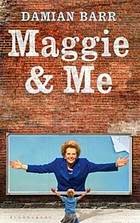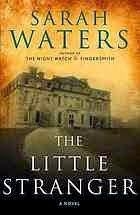This year, my reading has been reactionary. That’s because,
for the amazing Odyssey committee, I’ve been
listening to SO much children’s and YA lit.
While I’ve never before been so on top of the young people’s scene, it
also makes me want to read some more grown-up stuff. So I’ll start with a
sprinkling of young adult titles before I move on to what has made up most of
my reading year…
My favorite young
adult titles
Books as windows, ya'll...
This debut in diary format is unflinching in telling the
story of a southern Californian teen like nothing I’ve ever read before, except
maybe Grace Dent’s Diary of a Chav.
This story is about everything – class, femininity,
friendship, self-definition. It’s all told with a sense of humor and
proportion, with super-endearing characters.
Believe the hype...this was so good that I immediately, upon finishing, started
over from the beginning. I still have some issue with the ridiculous privilege
of Cadie and her kin, but echoes of King Lear cement it as a modern classic.
Some mysteries, by an
Alabama author and a 1.5 American
So not Agatha...
Cole manages to capture the New South in a way few have
done. The landmarks and characters are familiar in the best possible way, and
the writing is downright muscular.
I stumbled onto this one after reading Without you, there is no us (2014), Kim’s book about her experiences teaching in an English-language school for the children of the North Korean
elite. It’s a fascinating exploration of the immigrant experience, family
secrets and fallings-out, and Suzy is fantastically drawn.
Down memory road
It was a great year for memoirs...
I just adore Caitlin Moran. Her Moranthology got me to read Life,
the Keith Richards autobiography which gave me an entirely new appreciation of a band I've been listening to for 25 years. This is her first novel, heavily autobiographical,
laugh-out-loud funny, and very resonant of the early 90s for those of a certain
age.
One boy’s exuberant coming of age, told through the metaphor
of his love/hate relationship with Dame Thatcher, who is at once ruining his
life and offering him a role model.
Before the welfare state, life was so very different from
today. A heartfelt story about life in an
almost-Dickensian austerity Britain, from the former Home Secretary.
Another one for those of a certain age, this collection of
letters from a nanny working for a bohemian literary London household conjures
up perfect sense-memories of the 80s.
From the U.K., and
Australia, too
Okay, my Anglophilia is showing, I think.
I ripped through Waters’ work this year, but this excellent
twisty ghost story for the rational is my favorite.
Tripped upon this one in a Waterstone's in the West End...how wonderful to see mature love portrayed so realistically,
with palpable and explicable desire.
The overlapping layers of lives of the individuals in
Livesy’s novel are stunning.
An intricate thriller with Jewell’s trademark
individualistic characters, exploring crazy complex family relationships and
the oblivious self-centeredness of middle aged men.
A slowly blossoming love story, told over the course of an ill-fated road trip, involving four idiosyncratic characters with foibles all their own.
This may be my very favorite of the year.
Not David Chase, it’s schoolgirls on the loose
before a choir competition in Edinburgh. These girls are shocking. There’s a
follow-up, All the bright stars in the sky (2011), too.
Like everyone else stateside, I read
The husband’s secret (2013)
first, but this one is my favorite.
It
also has a killer postscript. I want more Australian books. It’s terrific to
read genre fiction from a different but not dissimilar culture.
Compared with 2012 and 2013, it's been an overwhelmingly female, overwhelmingly British reading year...maybe I'll shake things up a bit in 2015.




























.JPG)






